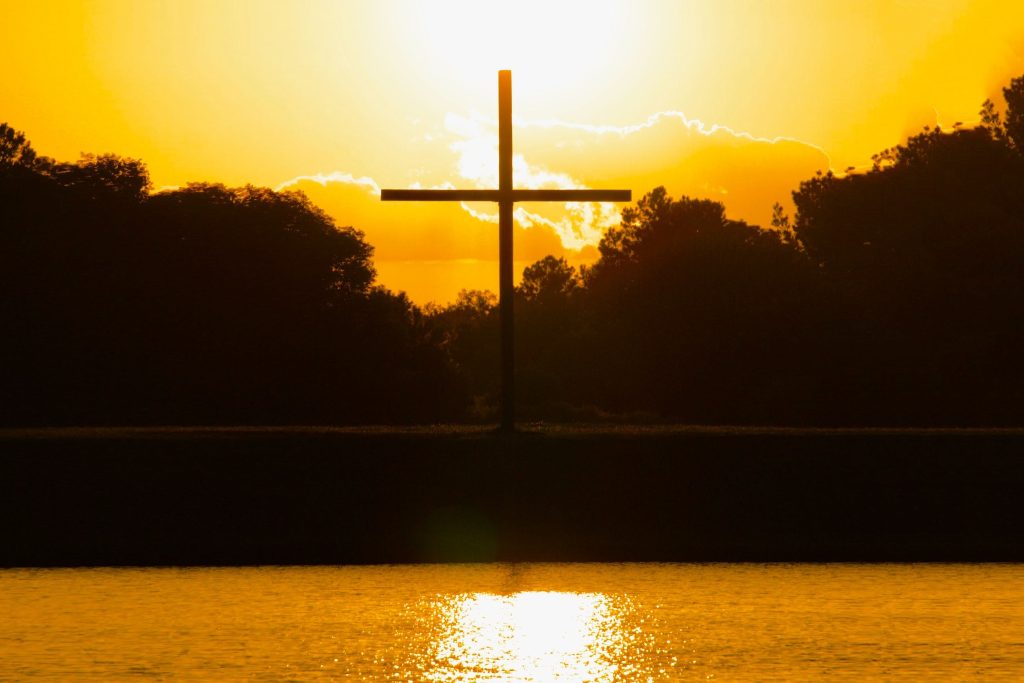
For the feast of the Triumph of the Cross celebrated on 14 September, Sr Katrina Brill shares a Personal Reflection.
Most days in cosmopolitan Auckland, I would see in my daily outings the symbol of the cross – hanging from a car mirror, around a girl’s neck, as a marker for death on a road, occasionally on a t-shirt, in churches, in cemeteries and of course in the emblem around my neck. What does the cross mean to people today? I am not sure I know!
The meaning of the Cross when I was young?
The understanding of the feast of the Triumph of the Cross or the otherwise known as the Exaltation of the Cross when I was growing up in the late 1940s and 1950s could be summed up in three statements:
Firstly in ‘Take up your cross daily and follow me!’ (Luke 9:23) The daily ‘crosses’ were considered a part of living. This attitude can be summed up by a quote from Saint Mary MacKillop in 1890, “Value your crosses as the most precious presents from a good and loving God”. I learnt from this that suffering and the ups and downs of life are part of the human condition. I still believe this.
Secondly, ‘By your Cross and Resurrection, You have set us free, you are the Saviour of the world.’ – Acclamation of Faith in the Eucharist.
From the sermons and Parish Missions in the 1950s, we learnt that Christ had triumphed over Death. Death was not the end of life and Jesus had shown us this in the story of the resurrection. His spirit lived on after his death, in loving union with God and so would our spirits (the essence of who we are) live on after death. This was called the Paschal Mystery and gave us hope. I still believe this.
Thirdly, the theme of ‘sacrifice’ – that Jesus ‘died on the cross for our sins.’ (Galatians 1:4) The meaning and emphasis on ‘sin and original sin’ caused theologians to go down a path that led to theologies of Atonement, Redemption and Salvation that often-evoked a fear of punishment; guilt and feelings of unworthiness; and images of Hell and Purgatory. Some odd beliefs also emerged, such as ‘only Catholics were saved and went to Heaven’.
Many devotions arose that supposedly would help ‘save us’ and allow us to gain salvation and heaven. I remember saying faithfully the Thirty Day Prayer and attending Mass on every First Friday for nine months. Then there were the many indulgences for actions or prayers that might improve my earning of salvation, heaven or might also save a soul in Purgatory! This thread of an over emphasis on ‘sin and redemption’ and of earning God’s love, I leave behind.
Pope Francis in Laudato Si’ says, “we are not in an era of change but rather a change of era.” We are called in this era to see our Christian story with fresh eyes and reimagine such customs as the Feast of the Triumph of the Cross.
What the symbol of the Cross means for me today
A symbol, such as the Cross, holds a story that brings meaning, it evokes feelings, and points beyond itself to a hoped-for reality in these times.
I have crossed over from the understanding of the Cross as symbolising ‘redemption through Jesus dying for our sins’ to an emphasis on the Triumph of the Cross or the Elevation of the Cross as the triumph or elevation of Love. In the First Testament we see that the Israelites, like us, had their share of transgressions and the prophets continued saying:
Love is the ultimate power and source of transformation. Love changes everything! By our Christian faith we are called to participate in the flow of this River of Love. We are soaked in God’s Love. We are drawn to see afresh through a lens of relationship and inclusion, our Earth and its people. Today we might refer to it as being in the Love-Flow of life. This is what Jesus modelled for us. Perhaps the exclamation in the Eucharist could be ‘By your life, death and resurrection you have set us free to love’.
Love is a decision. We begin the journey anew each day.
I believe Love-participation leads to the movement towards harmony and oneness. It is the meaning of the Feast of the Triumph of the Cross today.
Katrina Brill rsj
